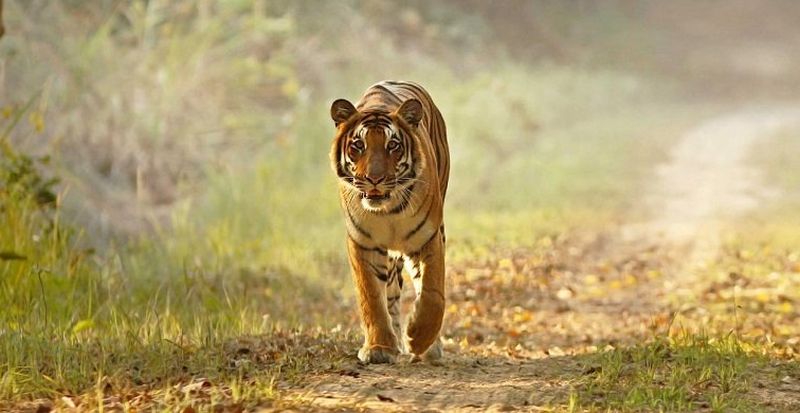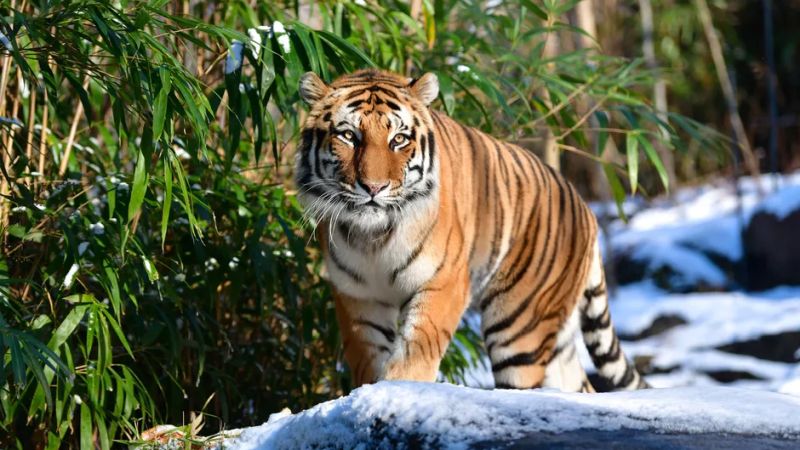Madhya Pradesh Department to Test Tigers for COVID-19 After Mysterious Deaths
Madhya Pradesh forest department is ready to test tigers in Pench Tiger Reserve for COVID-19 after mysterious tiger deaths in the reserve. Officials declared the step after the unexplained deaths of three tigers. The reserve at the last count had 53 tigers.
The officials stated that for the first time, tiger samples will be tested for coronavirus in the reserve. The forest officers are on the ground to take samples from the animals; the search began after three tigers – aged between 5 and 8 years, died in the reserve in January.

Officials declared the step after the unexplained deaths of three tigers in the reserve | Image: Corbett Tiger Reserve
VS Parihar, field director of the Pench Tiger Reserve said,
For the past 20 days, six forest department officials on two elephants are trying to locate tigers in the forest to tranquillise them and take samples. They are yet to find any as it is a difficult task–the rainy season has started.
To understand the reason for their death, the Reserve’s administration wrote to the forest department, seeking permission to take samples of 5 tigers randomly.
Last year, activist Sangeeta Dogra approached Supreme Court to look into the matter of the death of a 10-year old tiger in Pench. She suspected that coronavirus was the reason for its death. However, the state government claimed that the coronavirus wasn’t the reason behind the animal’s death.

Madhya Pradesh forest department to test tigers in Pench Tiger Reserve for COVID-19 after mysterious tiger deaths in the reserve | Image: Cnet
Earlier this month a lioness at Chennai Vandalur Zoo was suspected to have died from coronavirus after suffering from nasal discharge on the previous day.
A striking feature of the coronavirus is the spike protein on the surface. This spike protein creates infection with a host protein ACE2 receptors. Different species express ACE2 differently, which plays a key role in the likelihood of gets infected by a coronavirus.
It was found that the big cats express ACE2 more significantly. This is a serious issue and needs to be addressed to save wildlife from the clutches of a global pandemic.
Via: Times Now News


